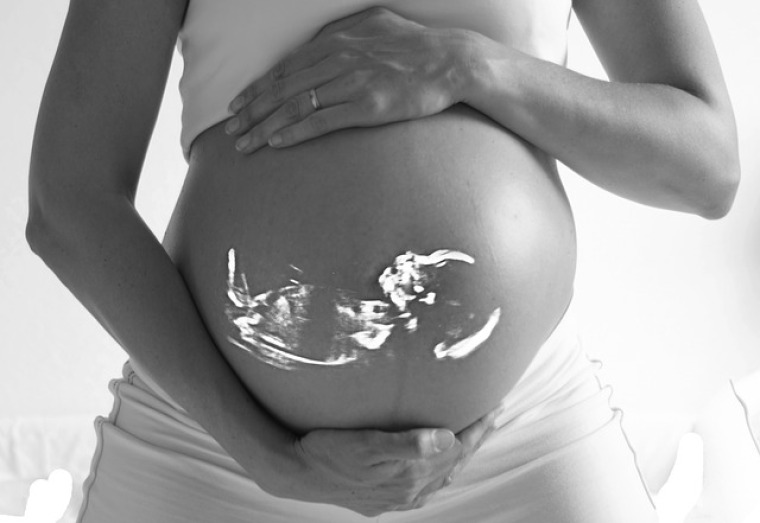New study suggests that unborn babies may be capable of feeling pain in the first trimester

A new study has revealed that the nervous system of embryos and fetuses develops much earlier than previously thought, which could indicate that unborn babies may be capable of feeling pain as early as the first trimester.
The study, titled "Tridimensional Visualization and Analysis of Early Human Development," showed that preborn babies in the first trimester have "adult-like" patterns of nerves.
The researchers were able to build a 3D cellular map of the human development during the first trimester using a combination of "whole-mount immunostaining, 3DISCO clearing, and light-sheet imaging."
"We found that the adult-like pattern of skin innervation is established before the end of the first trimester, showing important intra- and inter-individual variations in nerve branches. We also present evidence for a differential vascularization of the male and female genital tracts concomitant with sex determination," the researchers wrote in the summary of the study, which was published in the journal Cell on March 23.
While it cannot be concluded that the system of nerves observed in embryos and fetuses would allow the unborn to feel pain, the study suggests that the nervous system develops much earlier than previously thought, which could point to pain sensitivity.
According to Live Action News, preborn babies respond to touch as early as eight weeks, and there is increasing evidence that fetuses can feel pain much earlier than 20 weeks. Some studies claim that fetal pain could be even worse in the first trimester "due to the uneven maturation of fetal neurophysiology."
Dr. Colleen A. Malloy, a professor of neonatology at Northwestern University's Feinberg School of Medicine, told a U.S. Senate committee last year that surgeons and anesthesiologists use pain medication for fetuses at the 20-week stage because "it's supported by the literature completely."
"I could never imagine subjecting my tiny patients to a horrific procedure such as those that involve limb detachment or cardiac injection," said Malloy.
As many as 16 states have passed "Pain-Capable Unborn Child Protection" bills, which prohibit abortions after 20 weeks, in recent years, but lawmakers have not succeeded in passing a federal version.
In 2013, at least 5,770 late-term abortions were conducted at or after 21 weeks of pregnancy in the U.S., according to the Centers for Disease Control. About 8,150 abortions were performed between 18 and 20 weeks.
 Christians don't have to affirm transgenderism, but they can’t express that view at work: tribunal
Christians don't have to affirm transgenderism, but they can’t express that view at work: tribunal Archaeology discovery: Medieval Christian prayer beads found on Holy Island
Archaeology discovery: Medieval Christian prayer beads found on Holy Island Presbyterian Church in America votes to leave National Association of Evangelicals
Presbyterian Church in America votes to leave National Association of Evangelicals Over 50 killed in 'vile and satanic' attack at Nigerian church on Pentecost Sunday
Over 50 killed in 'vile and satanic' attack at Nigerian church on Pentecost Sunday Ukrainian Orthodox Church severs ties with Moscow over Patriarch Kirill's support for Putin's war
Ukrainian Orthodox Church severs ties with Moscow over Patriarch Kirill's support for Putin's war Islamic State kills 20 Nigerian Christians as revenge for US airstrike
Islamic State kills 20 Nigerian Christians as revenge for US airstrike Man who served 33 years in prison for murder leads inmates to Christ
Man who served 33 years in prison for murder leads inmates to Christ


 Nigerian student beaten to death, body burned over ‘blasphemous’ WhatsApp message
Nigerian student beaten to death, body burned over ‘blasphemous’ WhatsApp message 'A new low': World reacts after Hong Kong arrests 90-year-old Cardinal Joseph Zen
'A new low': World reacts after Hong Kong arrests 90-year-old Cardinal Joseph Zen Iran sentences Christian man to 10 years in prison for hosting house church worship gathering
Iran sentences Christian man to 10 years in prison for hosting house church worship gathering French Guyana: Pastor shot dead, church set on fire after meeting delegation of Evangelicals
French Guyana: Pastor shot dead, church set on fire after meeting delegation of Evangelicals ‘Talking Jesus’ report finds only 6% of UK adults identify as practicing Christians
‘Talking Jesus’ report finds only 6% of UK adults identify as practicing Christians Mission Eurasia ministry center blown up in Ukraine, hundreds of Bibles destroyed: 'God will provide'
Mission Eurasia ministry center blown up in Ukraine, hundreds of Bibles destroyed: 'God will provide' Church holds service for first time after ISIS desecrated it 8 years ago
Church holds service for first time after ISIS desecrated it 8 years ago Burger King apologizes for 'offensive campaign' using Jesus' words at the Last Supper
Burger King apologizes for 'offensive campaign' using Jesus' words at the Last Supper Uganda: Muslims abduct teacher, burn him inside mosque for praying in Christ’s name
Uganda: Muslims abduct teacher, burn him inside mosque for praying in Christ’s name